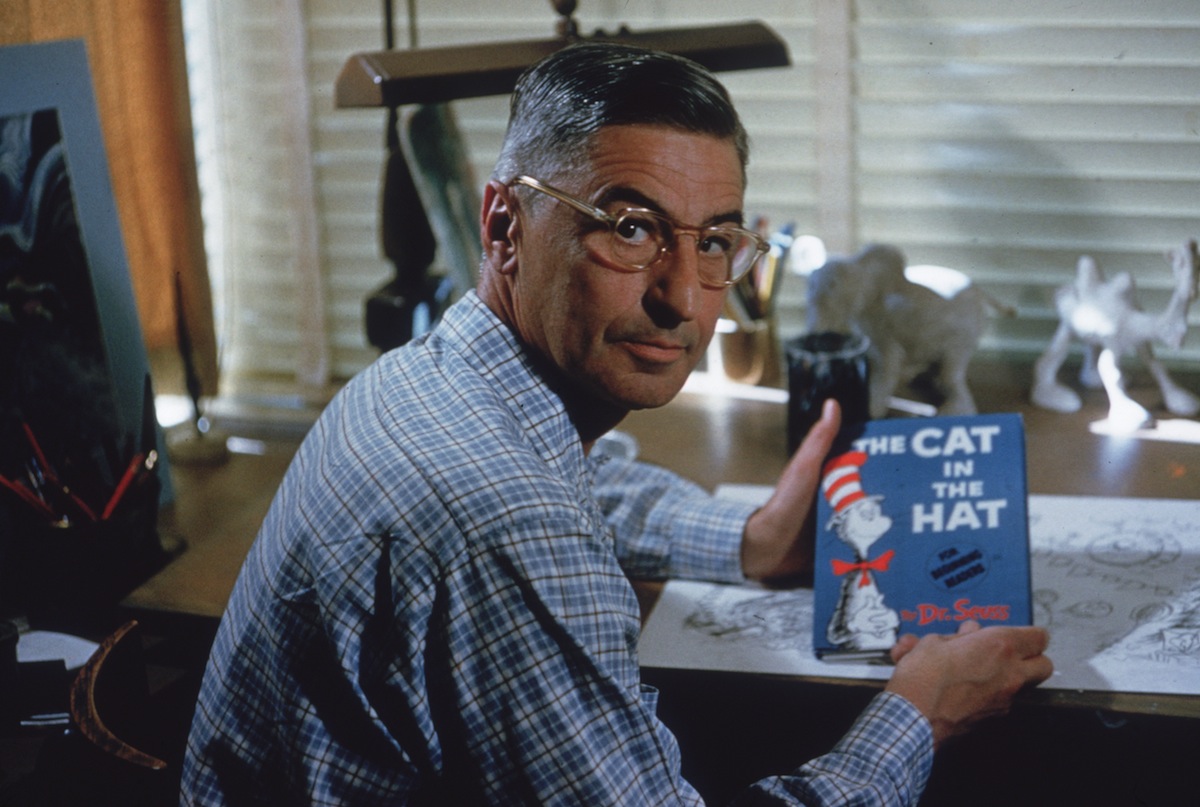
Fans of cats in hats and pops being hopped on learned on Wednesday that a new Dr. Seuss book is on the way: in July, Random House will published What Pet Should I Get?, a manuscript the late and legendary writer likely completed in the late 1950s or early ’60s but never published.
Just a few months ago, several stories that Seuss wrote for Redbook in the 1950s were published under the title Horton and the Kwuggerbug and More Lost Stories. In honor of that released, we combed TIME’s archives for some Seuss-ian history, and turned up these five facts:
Dr. Seuss wasn’t necessarily for kids.
The career-making images that TIME cited? An advertising campaign for Flit insecticide.Dr. Seuss’s wife helped him develop his stories.
Their marriage was financed, TIME reported, by a “cartoon of egg-nog-drinking turtles” that Dr. Seuss sold to Judge magazine in 1927. (Sadly, she died only a few months after that 1967 profile was published.)Dr. Seuss had no formal art training.
He walked out on “a high-school art teacher who refused to let him draw with his drawing board turned upside down” and that was that. For non-art education, he went to Dartmouth and Oxford.Dr. Seuss’s early vocabulary was inspired by school curricula.
Many books meant to teach kids reading used standardized lists of basic words that should be known by students of various ages, and Dr. Seuss’ work — despite the fantastical nature of the stories those words created — was no exception. He stopped using the lists when he no longer found them adequate, “because,” TIME explained, “today’s television-viewing children have an expanded vocabulary.”Dr. Seuss worked on an Oscar-winning animated short film.
Dr. Seuss’s Gerald McBoing-Boing cartoon won the Academy Award in 1951.
Now, in honor of the new story coming to light, here’s another fact to add to the list: Dr. Seuss said that he thought the idea of academic analysis of his work was pretty silly. His books were, as he put it, “logical insanity.”
Read the full 1967 profile of Dr. Seuss here, in TIME’s archives: The Logical Insanity of Dr. Seuss
More Must-Reads From TIME
- The 100 Most Influential People of 2024
- Coco Gauff Is Playing for Herself Now
- Scenes From Pro-Palestinian Encampments Across U.S. Universities
- 6 Compliments That Land Every Time
- If You're Dating Right Now , You're Brave: Column
- The AI That Could Heal a Divided Internet
- Fallout Is a Brilliant Model for the Future of Video Game Adaptations
- Want Weekly Recs on What to Watch, Read, and More? Sign Up for Worth Your Time
Write to Lily Rothman at lily.rothman@time.com